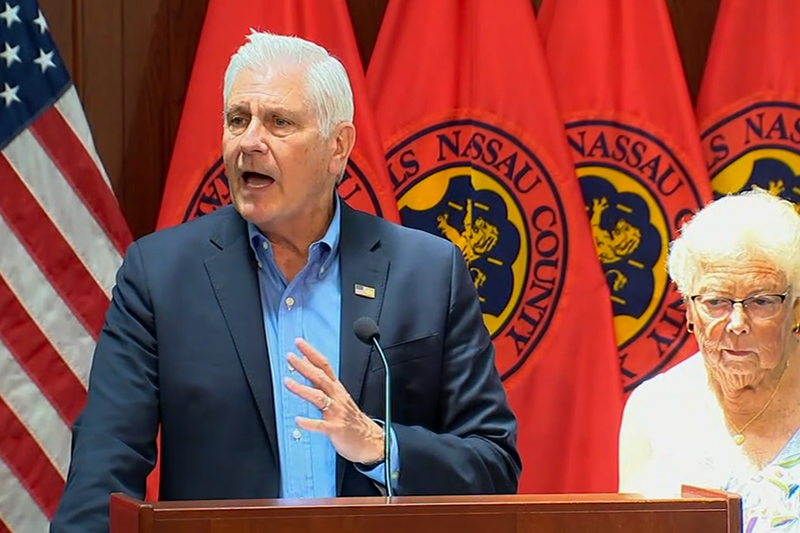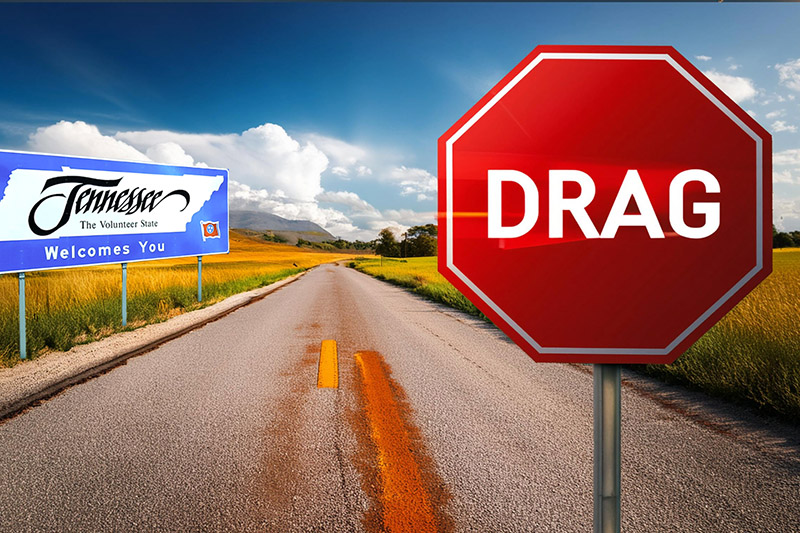Trans athlete sues USA Powerlifting over its policy barring her from competing as a woman
JayCee Cooper says the organization's ban on transgender competitors "violates...the very spirit of sports."

A transgender powerlifter is suing USA Powerlifting, the sport’s biggest U.S.-based organization, for its policy prohibiting her from competing as a woman.
The lawsuit, filed earlier this week in Minnesota state court by the Minnesota-based organization Gender Justice on behalf of JayCee Cooper, argues that USA Powerlifting’s policy violated the Minnesota Human Rights Act, which expressly prohibits discrimination based on gender identity.
Cooper’s lawyers note in their complaint that other powerlifting and athletic organizations, on the local, national and international levels, allow transgender women to compete as women if they meet certain criteria.
The International Olympic Committee allows trans women to compete if their testosterone remains below a certain level for at least 12 months.
The International Powerlifting Federation, the parent organization of USA Powerlifting, imposes a similar requirement, but doesn’t require its national affiliates to abide by the same policy, reports NBC News.
In her lawsuit, Cooper claims she was rejected from competing, even though she provided documentation that her testosterone levels had remained below the mark set by the IOC for two years.
By not allowing her to compete simply based on her assigned sex at birth, Cooper alleges that USA Powerlifting is engaging in unlawful discrimination.
“It came as a surprise to me that when I applied to compete at my first competition, I was told that I couldn’t compete specifically because I’m a trans woman,” Cooper said at a news conference on Tuesday. “I was gutted. I had been training for months and up until that point had experienced so much love and community around the sport.”
USA Powerlifting’s transgender policy, which was published in January 2019, notes that “USA Powerlifting is not a fit for every athlete and for every medical condition or situation. Simply, not all powerlifters are eligible to compete in USA Powerlifting.”
Specifically, the policy does not allow transgender males to compete at all if they are taking testosterone or other hormones to assist in their transition, treating it like a performance enhancer.
With respect to transgender females, the policy states that, due to naturally-occurring androgens, those assigned male at birth have significant physiological advantages over those assigned female.
See also: Three female athletes sue Connecticut over transgender females competing in women’s sports
“These advantages are not eliminated by reduction of serum androgens such as testosterone yielding a potential advantage in strength sports such as powerlifting,” the policy notes. “The IFP added acceptance of the International Olympic Committee Guidelines on inclusion of transgender individuals in competition.
“However, the IOC Guidelines also allows sports to determine the impact on fair play through such inclusion. The IPF Medical Committee, while respecting the rights of those who choose to transition, has been consistent in its opinion that use of testosterone and participation of male to female transgender athletes in our sport compromises fair play.”
A study published in the British Journal of Sports Medicine examining the physical assessments of transgender military members found that transgender women maintain an athletic advantage over cisgender women, even after a year on hormones.
But after two years, trans women were “fairly equivalent to cisgender women” in terms of athletic ability. The study did not look specifically at competitive athletes.
“There are a myriad of factors that help determine someone’s success in competition,” Erin Maye Quade, advocacy director at Gender Justice, said in a statement. “Anti-trans propaganda’s fixation on a single factor lays bare their plot to perpetuate rigid ideas about how women are supposed to look and sound and act.”
Cooper says she’s pursuing the lawsuit to ensure other trans athletes will not be barred from competition, as she was.
“As a powerlifter and a transgender person, I’m no stranger to a challenge. I’ve jumped through all the hoops, trying to meet USA Powerlifting’s arbitrary and subjective standards, just to have them respond with an outright ban on transgender women in competitions,” Cooper said in a statement. “At some point you have to say enough is enough. USA Powerlifting’s blanket ban violates not just the law, but the very spirit of sports.”
Read more:
Trump takes parting shot with anti-LGBTQ rule allowing social service agencies to discriminate
Montana lawmakers will consider two anti-LGBTQ bills this session
Gay professor sues Christian university for discrimination after being denied full-time position
Support Metro Weekly’s Journalism
These are challenging times for news organizations. And yet it’s crucial we stay active and provide vital resources and information to both our local readers and the world. So won’t you please take a moment and consider supporting Metro Weekly with a membership? For as little as $5 a month, you can help ensure Metro Weekly magazine and MetroWeekly.com remain free, viable resources as we provide the best, most diverse, culturally-resonant LGBTQ coverage in both the D.C. region and around the world. Memberships come with exclusive perks and discounts, your own personal digital delivery of each week’s magazine (and an archive), access to our Member's Lounge when it launches this fall, and exclusive members-only items like Metro Weekly Membership Mugs and Tote Bags! Check out all our membership levels here and please join us today!

























You must be logged in to post a comment.